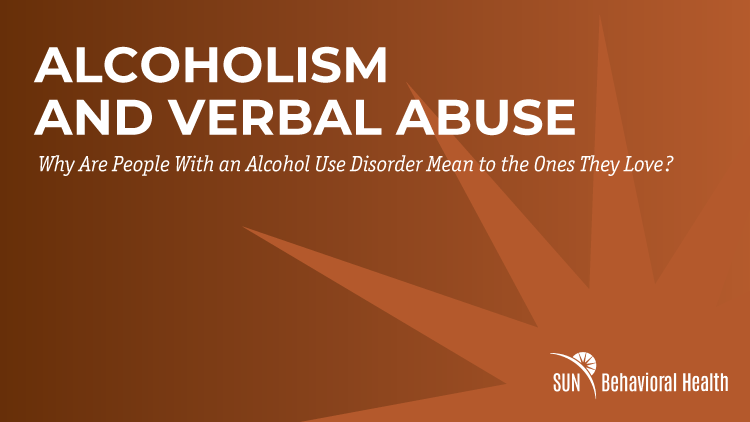Services

At first, Jenny’s husband was kind and respectful to her. She knew he enjoyed alcohol, but it was usually just a beer during a game or a glass of wine at dinner after a rough day at work. She viewed his habits as reasonably normal.
After some time, Jenny noticed her husband would pour 3 more glasses of wine a night or include other types of alcohol more regularly. He would blame her for a stain on his shirt or snap at her for speaking up. One day, after she tried to confront him about his drinking habits, he told her, “If you loved me, you wouldn’t try to control me. You’re just on top of me because you don’t have anything else going on in your life.” The comment hurt Jenny deeply, especially since she’d never heard her husband speak like that before.
The next day, he denied the conversation ever happening. Jenny still loved him, but she was beginning to question her safety when he drank. She knew convincing him to seek treatment would be difficult, especially since he was the only one in the household working.
In 2021, 5% of people in Delaware participated in regular, heavy drinking. Meanwhile, in 2020, 22,587 people reported domestic violence cases in Delaware. This number includes both physical and verbal abuse. While not every person who participates in regular, heavy drinking will commit acts of domestic violence, and not everyone who committed acts of domestic violence participated in chronic, heavy drinking, there is an overlap with these numbers. As of 2020, 40% of reported domestic violence cases in the United States involved alcohol.
Many people find it difficult to seek treatment because they believe it only happens during the day. Maybe they have a lack of transportation or work/family obligations, making it difficult to attend. SUN Behavioral Health Delaware offers evening intensive outpatient Mondays, Wednesdays, and Thursdays from 6 PM to 9 PM to allow people another option regarding their treatment. Today, we will discuss alcoholism and verbal abuse and how it can impact the people involved.
People with an alcohol use disorder can have lower inhibitions because it is a depressant. One of the alcohol side effects is that it makes it difficult for them to think clearly and slows down how they process information. While this can lead to someone deciding to drive a car under the influence of alcohol or stumbling down a set of stairs, this also can make them more likely to have violent or aggressive behaviors like verbal abuse.

Alcohol controls their every moment when they have reached the later stages of alcoholism. In these later stages, they might only be concerned about when they will get their next drink, which can result in them pulling away from those they love. Alcohol also alters people’s behaviors. When drinking alcohol, they might become angry or irritated, lashing out at those closest to them. The words they say during those moments can be painful to hear, and it can be difficult not to take those words to heart.
As difficult as it might be to hear, not all people with an alcohol use disorder are mean to those that they love. However, some people are more likely to react with anger when drinking than others. It does not mean your loved one does not love you when they respond angrily, but remember, you don’t have to deal with it or the consequences. Some people lash out in anger and verbal abuse to release stress, or they might not be comfortable sharing their feelings when they are not drinking, so when they do drink, it all comes out at once.
Alcohol can lead to higher levels of aggression. Alcohol can make it challenging to control logic, reasoning skills, and emotions, leading to higher levels of aggression. The increased aggression and lowered inhibitions alcohol can bring can lead to verbal abuse. Factors such as stress or not knowing how to manage emotions can increase one’s chances of participating in verbal abuse while drinking alcohol.
Alcohol can cause personality changes, especially if they are constantly consuming alcohol. Someone who only drinks alcohol occasionally is less likely to experience a personality change when drinking. However, if someone binge drinks frequently, they will likely have behavioral and personality changes. Not everyone will experience the same personality changes even if they drink the same amount. One of the personality changes someone might develop is that they become verbally abusive. They might also establish chronic lying, self-destructive behavior, or suicidal thoughts. Some might become defensive or have a difficult time with emotional regulation. Other behaviors can be compulsive shopping or gambling.
Having an alcoholic spouse can be difficult. Perhaps you wonder if they will come home safe or if you will get a call that says they experienced alcohol poisoning. It can lead to personal anxiety and fear. It can be even worse if they are verbally abusive when they come home and play mind games with you. It can be easy to accept this side of them as fate. You likely still love them even if they are abusive, but remember that you don’t have to give in to their verbal abuse.
You don’t have to enable them to continue to use alcohol to support them as your spouse if that is your decision. Never play the same games they play with you. For example, if they say something like, “If you loved me, you would buy me alcohol,” or “If you loved me, you would pay my bail for my DUI,” don’t respond with something like, “If you loved me, you would stop drinking alcohol, or you would seek treatment.”
One of the mind games they might play on you is gaslighting. Gaslighting is when they deny they ever said or did something to you or someone else. They might describe an event differently from yours, often in a way that paints them positively. They might also call you “crazy.” You might not even recognize that you are experiencing gaslighting at first, but over time, it can harm your self-esteem. Remember that help during any form of abuse is always possible.
There are some things that you can do for your loved one. Continue to treat them with respect. When they aren’t drinking, talk to them calmly about your concerns. If needed, separate yourself from your loved one for your safety and seek help for your mental health during this time. If it ultimately comes to it, it might be time to leave. Go to a place where you know will be safe, and involve the police if necessary.

Call 911 if you feel like your life is in danger or if the verbal abuse escalates to physical abuse. Reach out to a trusted friend, therapist, or family member. Calling a crisis line or abuse shelter can also be helpful.
One of the best things you can do for yourself and your loved one is to encourage them to seek treatment for their alcohol use disorder. Have a discussion with them about alcohol use disorder treatment. Remind them that even if they are experiencing alcohol withdrawals that make them want to return to alcohol use, you will continue to support and encourage them through the recovery process.
SUN Behavioral Health Delaware solves unmet needs by providing 24/7 crisis care to help you get started on your treatment. For more information or to get started today, call us at 302-604-5600.
Many people who have an alcohol use disorder will also have a mental health concern as well. These concerns may include depression or anxiety, but they can also include bipolar disorder or schizophrenia.
People who have an alcohol use disorder might turn to alcohol as a way to cope with mental health concerns or difficult emotions. They might also feel pressure from peers to drink.